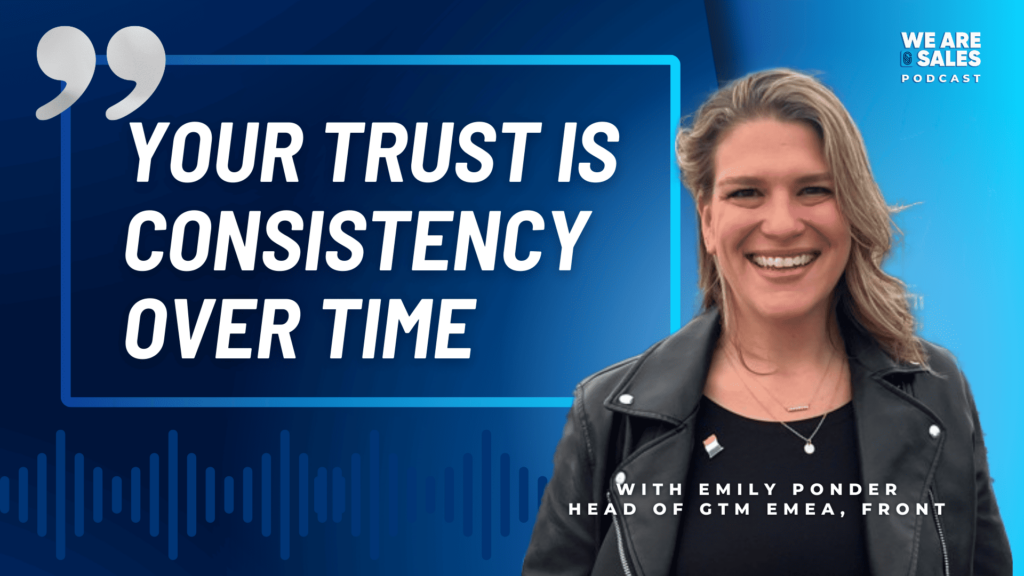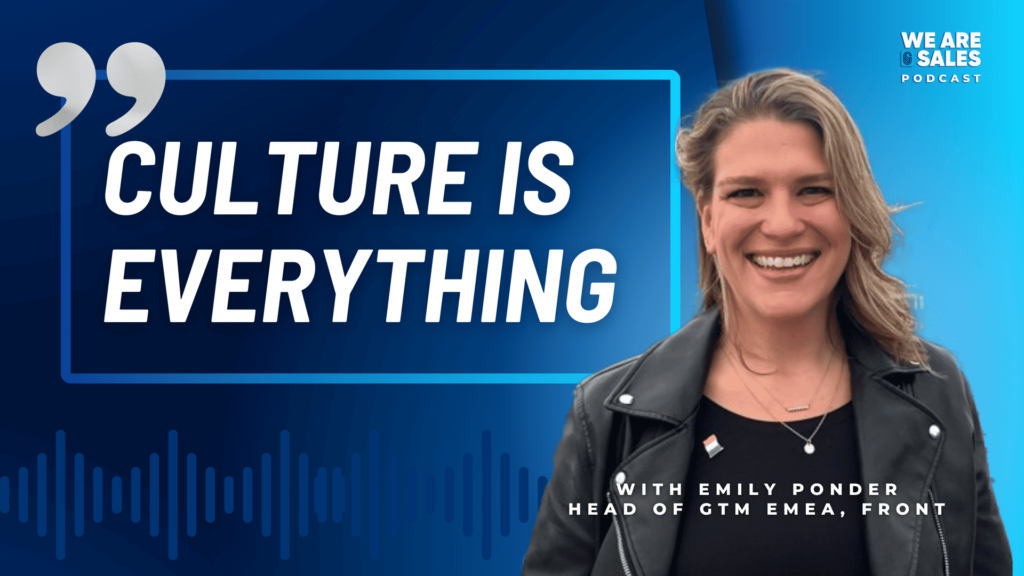Share:
The meaning of “intention” in building an intentional performance-driven culture

How about building a culture that drives performance? 🚀
Are you bringing the team together once in a while? Are you offering flexible working hours? Can people work remotely? Are you investing in their happiness at work?
If yes, good, but that is NOT what a culture is all about. It can contribute to it, but they surely are not the foundations that defines the “culture”.
This makes us think, right? What are the foundations of a culture and how can one build & manage it?
Those are the exact questions that got answered by Emily Ponder, Head of GTM EMEA at Front and ex-Head of Sales UKI at Linkedin, on the latest podcast episode.
You can listen to the interview here, or read along to get our favourite takeaway from our interview with Emily.
Want more articles like this one directly in your mailbox?
To provide some context: Emily joined the unicorn Front about 2 years ago with the mission of leading the GTM team in our region. HQ had recruited her along with a team of ICs and another manager to get things started. This means that there wasn’t much of a team, nor culture when she joined.
Today, Emily was happy to report the following:
“We have experienced zero regretted attrition despite the shift into a challenging economic environment. Our team also has consistently had higher engagement scores than the company average, as well as higher scores for questions relating to ‘being connected’ and ‘understanding the company’s mission’.”
The ability to articulate these elements serves as evidence of a leader and a company that are building and managing the culture with intention.
This is also often the issue, as Emily points out:
“When people talk about culture, it is assumed that it is happening somewhere. I think that’s a common mistake a lot of leaders make; which is not realising that it is their job to intentionally build that.”
To make this idea very tactical, let me bring in an example.
Emily (personal value) as well as Front (company value) both find it crucial to have a culture of empowerment.
As she explained, the first step, is to have a shared understanding of the term.
Especially in EMEA where we have so many different cultural meanings, it is important to define the terms to be well aligned.
💡 Pro-tip: ask your team members to repeat back what you said and correct if it is has not been properly interpreted.
For Emily, it is the following:
“I want my team to have the feeling that they are part of what is being created”.
Next, be clear on “how” you want to realise this.
That’s where the intentional work kicks in:
“You want your people to get freedom over their role. Of course, you provide feedback, you give them the playbooks, you challenge them. However, don’t jump in calls to show them over and over again on how it needs to be done.”
“Sometimes they will succeed, sometimes they will fail. When you are allowing them the grace to learn, the success is theirs. The success isn’t yours.”
“On the one hand, this will build competence, and as the saying goes: competence leads to confidence. On the other hand, the thoughtfulness of letting someone own their own success, allows them to take ownership.”
“I have to be honest, sometimes it is scary, because you lose control and you have to work from a place of trust. However, when I have doubts about someone’s approach, I will force myself to not say ‘do not do that’ or ‘I wouldn’t do that’. Instead, I will say ‘help me understand, what is the thought process here’. It has to start with my own behaviour.”
💡 Pro-tip: notice how Emily ties behaviour with the creation and management of the culture. Be clear on what behaviour is okay vs. not okay.
As a leader, if you’re not able to verbalise your cultural values like this, ask yourself: are you truly able to make sure that the team lives by these values?
Or even more important: are you living by them with consistency?

